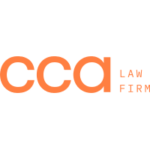
The Evolution of Online Gambling Regulations
A look into how online gambling laws have changed over the years across different jurisdictions.
- History of regulations
- Current frameworks
- Key challenges
- Future predictions
In Canada, the tax treatment of gambling winnings varies depending on whether you are a recreational or professional gambler. This guide helps you understand your tax obligations.
The topic of Canada casino tax is essential for anyone participating in gambling activities, whether online or in land-based casinos. With the rise of online gaming and sports betting, understanding the tax implications of gambling winnings in Canada is more important than ever. This blog post will explore how gambling winnings are taxed, who is affected, and what players need to know to stay compliant with Canadian tax law.
In Canada, gambling winnings are generally not taxable for recreational gamblers. This means that if you win money playing at a casino, betting on sports, or participating in lotteries, you do not have to pay income tax on those winnings. The Canadian government treats gambling winnings as a "windfall" or a result of luck, not as earned income.
There are two main categories of gamblers in Canada:
The primary legislation governing gambling taxation in Canada is the Income Tax Act, specifically Paragraph 40(2)(f)(ii). This section states that gambling winnings are not considered taxable income unless the individual is a professional gambler. The law applies across all provinces and territories, ensuring a consistent approach to recreational gambling.
Recreational gamblers in Canada enjoy a tax-free status on their winnings. This exemption covers:
No matter where you play in Canada, if you are gambling for fun, your winnings are not subject to federal or provincial income tax.
Recreational gamblers do not need to report their gambling winnings on their tax returns. However, if you invest your winnings and earn interest or dividends, those earnings are taxable and must be reported as investment income.
While recreational winnings remain untaxed, the scenario changes for professional gamblers who must adhere to federal and provincial tax regulations.
Each province may have different tax obligations for professional gamblers, making it essential to know local laws.

A professional gambler is someone who:
The Canada Revenue Agency (CRA) looks at factors such as frequency of play, record-keeping, and intent to profit when determining professional status.
Professional gamblers must report their gambling winnings as business income. This means:
For 2025, the federal tax rates for professional gamblers are:
Provincial tax rates will also apply, depending on the gambler's province of residence.
While the federal law is consistent, provincial tax rates for professional gamblers vary. For example:
These rates apply to the taxable income of professional gamblers, not to recreational winnings.
Ontario: Professional gamblers must pay both federal and provincial tax on their gambling income. Recreational gamblers are exempt.
Quebec: Similar rules apply, with no tax on recreational winnings and full taxation for professionals.
British Columbia: The provincial tax rate is slightly higher, but the federal exemption for recreational gamblers remains.
It’s important to note that recreational gambling winnings are tax-free in all provinces.
Understanding Canada casino tax is crucial for all gamblers, whether you play for fun or as a profession. Recreational gamblers can enjoy their winnings without worrying about taxes, while professional gamblers must report their income and may be eligible for deductions. Provincial tax rates apply to professional gamblers, but the federal exemption for recreational winnings is consistent across the country.
By staying informed about these regulations, you can ensure compliance and make the most of your gambling experience in Canada.
We are supported by industry experts in legal frameworks to provide the best guidance on gambling laws and taxes.





A look into how online gambling laws have changed over the years across different jurisdictions.

Insights into how sports betting is taxed under Canadian law and what changes to expect.